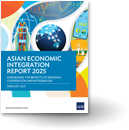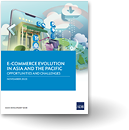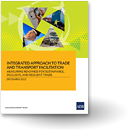Tracking COVID-19’s devastating toll on Asia’s remittances
Our research indicates that the global economy could lose more than $100 billion in remittances. Governments need to act fast to protect the most vulnerable in society from this loss of vital income.
The COVID-19 pandemic continues to weigh heavily on economic systems and employment around the world. Migrant workers are among the hardest hit groups, with many facing scant job security and limited access to social assistances. Large-scale unemployment and wage reduction among migrant workers also threaten the wellbeing of many households in Asia and the Pacific who depend on remittances to meet their daily needs.
Based on our worst-case scenario, where the COVID-19 economic impact persists throughout the year and dissipates halfway in the last three months of the outbreak, global remittances will fall by $108.6 billion in 2020. This is equivalent to an 18.3% decline from what would have been expected without the impact of COVID-19. Remittance receipts in Asia and the Pacific would fall by $54.3 billion, equivalent to 19.8% of remittances in 2018.
By subregion, remittances in South Asia are expected to fall furthest, by $28.6 billion (24.7% of 2018 receipts), followed by remittances to Central Asia ($3.4 billion, 23.8%), Southeast Asia ($11.7 billion, 18.6%), and East Asia ex-People’s Republic of China and Japan (1.7 billion, 16.2%). Remittances to the Pacific will also fall ($267 million, 13.2%).
The majority of the decline in remittance flows to the region is explained by a $22.5 billion fall in remittances from the Middle East, which accounts for 41.4% of the total remittance loss in Asia. This is followed by a $20.5 billion slump in remittances from the United States, (37.9% of total). The fall in remittances from the EU and the United Kingdom accounts for 6.3% of the total, or $3.4 billion. The decline from the Russian Federation amounts to $2.1 billion, of which $2 billion reflects the decline in remittances going to Central Asia.
By percentage, the Middle East and the Russian Federation experienced the sharpest decline—over a third—primarily reflecting the effects of low demand and oil prices on remittances.
Governments in the region could help manage the impact of COVID-19 on remittances by extending temporary social services to assist stranded and returning migrants; providing income support to poor remittance-recipient families; and designing health, labor, and skills policies to help migrants return to their jobs, or be employed in their home countries.
Original article was published at the ADB Blog and duplicated here with permission from the authors. *




